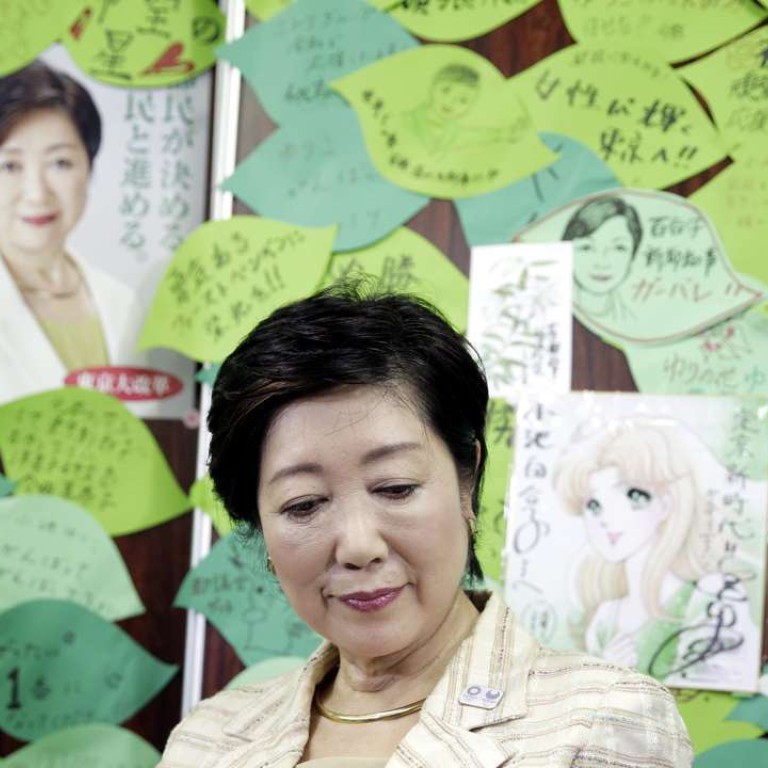
Gender shift that has more women in power may lead to better governance
Yuriko Koike election as Tokyo’s first female governor continues an encouraging global trend this year: the taking by women of top roles in politics
The election of Yuriko Koike as Tokyo’s first female governor continues an encouraging global trend this year: the taking by women of top roles in politics. Her recent win follows Theresa May becoming Britain’s prime minister, Tsai Ing-wen Taiwan’s president and Aung San Suu Kyi Myanmar’s state counsellor, effectively the nation’s top leadership position. Should Americans choose Hillary Clinton for the presidency in November and the UN opt for other than a male secretary general, a symbolically important moment will have arrived in the struggle to shatter the glass ceiling. The gender shift is about fairness and equality, but also breaking down cultural and structural barriers that have the potential to lead to better governance and policies.
Koike played down her achievement, knowing it will take many more women to make a difference in the overwhelmingly male-dominated Japanese political environment. She is only the seventh female prefectural governor to be elected in Japan, while the gender accounts for less than 10 per cent of politicians. Being a woman puts her in good stead to understand the issues Tokyoites most want their new leader to handle, child care and education. But she also has to deal with a funding crisis over the city hosting the 2020 Olympic Games and a rift in her Liberal Democratic Party that prompted the former defence and environment minister to run for election as an independent.
Success in large part depends on her skills at managing people. It is helpful that she is a woman; evidence from academic research points to the gender typically having greater compassion and empathy and a negotiating style that is more open and inclusive. There are many leadership approaches and some women intentionally try to undermine stereotypes; being tough or hawkish are often necessary positions. Of the world’s 19 current national female leaders, eight are known as “the iron lady”, the nickname of the late Margaret Thatcher, Britain’s first woman prime minister.
Women are far less successful in the corporate world and there is a long way to go before they attain 50 per cent of political positions. But with May and Germany’s Angela Merkel holding two of the most powerful jobs in Europe, and the possibility that Clinton could take the US presidency, there is a high chance that the gender will soon be instrumental in globally-important negotiations. Among them is Britain’s leaving the EU, the fight against the Islamic State, tackling climate change and lessening world hunger, disease and poverty.

